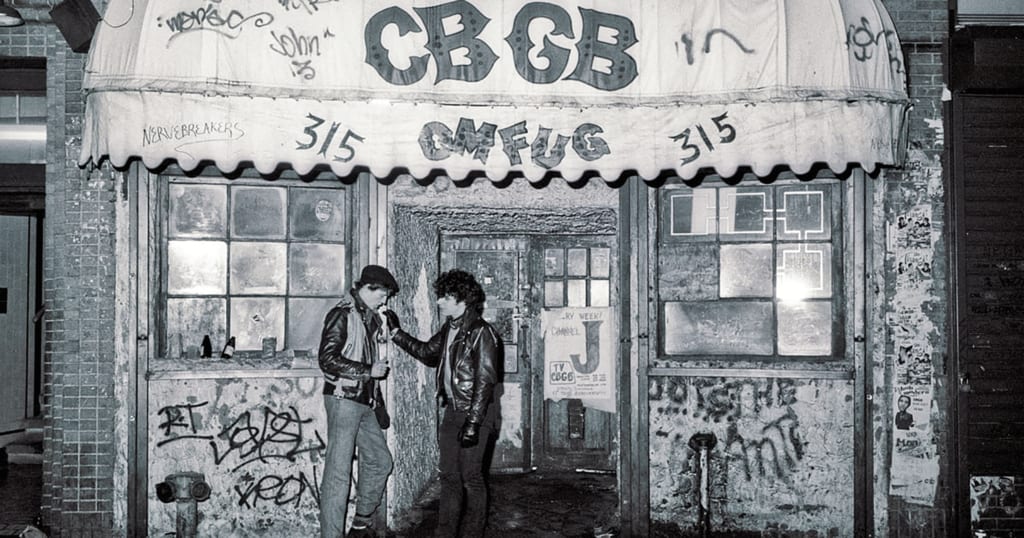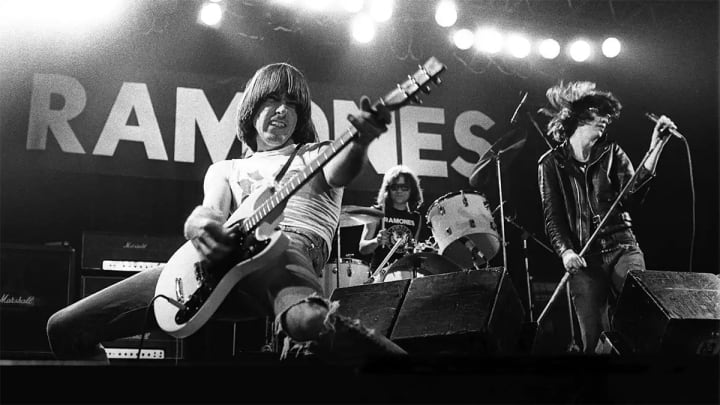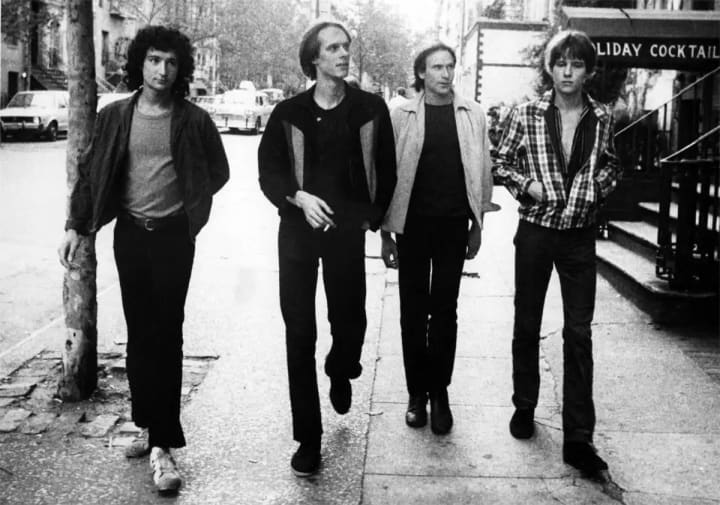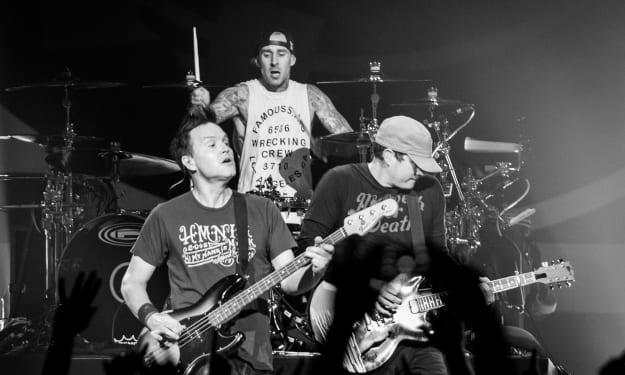Unmasking The Punk Underground
The explosion that was the punk underground may not have been as revolutionary as it had first seemed.

He's tough tonight, with a non-filter cigarette dangling from his soft, adolescent lips as beads of warm sweat run down his hairless chest. Standing in front of the New York rock club, CBGB, he's imagining himself as Brando, flexing his self-image, imagining knife fights in alleys or plugging chicks like there's no tomorrow. Tough, real tough, like the rock band inside, the Ramones, who are the essence of the emerging rock trend, punk rock.
To him, punk is new. But he's too young to know that the Ramones are a direct re-castings of the bands that marked the "Golden Age of Rock" in the 60s, when the Stones were shit-kicking mean, the Kinks were tough, the Yardbirds hard, and the Velvet Underground all that and more. All he knows is that punk is in. Forget the glitter and the eye makeup, the platforms and the hustle. Now it's hard rock, loud and aggressive, played by horny guys no father would let his daughter near. The bands—The Ramones, Television, Talking Heads, The Runaways, Tuff Darts, and the Heartbreakers—got together in places like Rhode Island, California, Queens, and Florida, wherever kids, guitars, and dreams mix. Somehow they have all converged on one club, the pagoda of Punk, CBGB, a scuzzy little dive on the Bowery in New York.
There they flirt with stardom, remembering that Patti Smith played there before it all happened for her. Indeed, the Ramones have an album out on Sire Records, Television is signed with Electra and is about to release its first LP, and Atlantic has released a double punk album, Live at CBGB. These bands sense the excitement around them as the rock press flocks to their cause, fresh from creating stardom for Bruce Springsteen and Patti Smith.
What Is Punk Rock?

Not that anyone knows what punk really is. In the 50s, "punks" were the skinny kids who even smelled creepy, the kids whom hoods used to slap around just for the hell of it. In the prison world, punks are the submissive partners in homosexual relationships. But in pop music, the term connotes music's young ruffians, those having cult followings and futures that loom much bigger than an interim underground status.
"Punk Rock?" asks Punkmagazine editor, John Holstrom. "It's a kid picking up a guitar and becoming a rock-'n'-roll star despite or because of his lack of ability, talent, intelligence, limitations, and/or potential; and usually doing so out of frustration, hostility, a lot of nerve, and a need for ego fulfillment. It takes a lot of sophistication or, better yet, none at all to appreciate Punk Rock."
The Ramones are punk in the interest of the group image, each member "changed" his own last name. Now they are simply Joey Ramone, Dee Dee Ramone, Tommy Ramone, and Johnny Ramone. They dig hanging out with old groupies left over from the kinky New York Dolls, like this one chick who scares off other girls because of the cigarette burns on her thighs. "Sometimes the songs stick in your head even when you don't want them to," says the Ramones' manager, Danny Fields. When the Ramones perform, one hard-rock song follows another, all nearly identical and separated by only a four-beat pause. Their progression is made more interesting, however, by changes of key (B, B, A, E, D, B, E, D, E, Eb, A, and C). In "53rd and 3rd," the Ramones' ode to a psychotic homosexual hustler, we hear: "Then I took out my razor blade / Then I did what God forbade / Now the cops are after me / But I proved that I'm no sissy."
Toying With Toughness

Similarly adolescent is the music of Television, a group that owes a lot to the mid 60s group, Thirteenth Floor Elevator. A mixture of pinball and poetry, their music draws on sexual frustration heightened by frantic needs and heroic self-images. These guys are anguished and cynical, demanding that they be accepted as everything they aren't. Their lyrics are suggestive of a horny, t-shirted kid at a drive-in with his date, as even the song titles indicate: "Hard on Love," "One on Top of Another," "Love Comes in Spurts." Television's lead singer, Tom Verlaine, assumes the beat pose, wearing torn T-shirt, black jeans, and worn sneakers. He is the punk sex object—skinny, languid, and, as Patti Smith has put it, "blessed with long-veined hands reminiscent of the poet strangler, Jack the Ripper... a guy worth losing your virginity to."
These punk bands carry on the tradition of underground stars such as Lou Reed and The Ramones, toy with toughness, thinking their leather jackets make them men. Television lounged in a romantic self-image that borders on self indulgence.
It's was a pop phenomenon that had been seen and heard before, a return to the look of hard rock that is supported by the traditional adolescent concerns of sex and self-image. But trend or no trend, the punk wave offered little in the way of musical substance.
About the Creator
Adam Quinn
Music student and proud Chipotle fanatic. Playing local shows and writing his own music between classes and burritos.






Comments
There are no comments for this story
Be the first to respond and start the conversation.